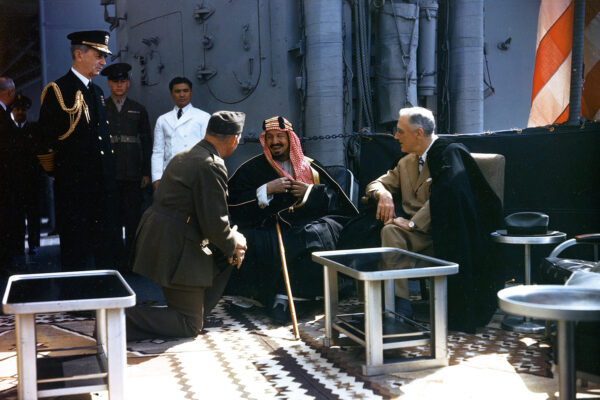
President Barack Obama’s visit to Saudi Arabia this week is inspiring all the familiar exhortations to cut American ties with the oil kingdom. It has a retrogressive regime that sponsors religious fanaticism around the world, the critics point out, and it wages a brutal war in Yemen that has killed thousands of civilians.
All of which is true, but none of which is a good enough reason to break up the alliance.
Iran is worse
Max Boot, a conservative and military historian, gives us the short version.
“We may not like the Saudis,” he writes in Commentary magazine, “but Iran is worse — and so too are the indigenous alternatives to the Saudi royal family.”
It’s easy to mock the royals for their hypocrisy — these are the people who posture as pious Muslims at home while living playboy lives in the West — but far worse would be to see in Riyadh rulers who are as fundamentalist as the Saudi royals pretend to do.
Unhappy marriage
Adam Garfinkle, an international relations scholar and Middle East expert, has the long version in The American Interest.
He recognizes that the marriage is one of convenience. To the Saudis, the Americans are heathen, objectively pro-Zionist, prone on occasion to entreat their local foes and not entirely reliable in a pinch to boot. To the Americans, the Saudis are feeble, primitive-minded, religious in all the wrong ways and inclined to destabilize the Middle East for reasons both selfish and sanctimonious.
Yet neither side had much of a choice from the start.
No protector besides the United States was both willing and able to vouch for Saudi security after 1945. And no oil producer besides Saudi Arabia was as large and critical to the world’s prosperity in the new age of oil.
This basic reality still holds even though the United States no longer need Middle Eastern oil. Garfinkle points out that the Saudis are the market’s only serious swing producer, which makes them critical to both the economic health of America’s allies and the security of the world.
The market for oil is internationally integrated and denominated in American dollars, so that, despite American energy self-sufficiency, the price is still a function of global supply-and-demand dynamics. Unless you are into Fortress America thinking and could care less about the US supply of global security goods, this still matters enormously for American foreign policy.
Add to that the threat posed by Iran, a terrorist-financing nation that seeks to revise the balance of power in the Middle East, and the rationale for the American-Saudi alliance is the same as it was forty years ago.
Who else is there?
As for the monarchy’s religious fanaticism, Garfinkle agrees with Boot that the alternative would be worse.
“The idea that there are pro-Western liberals waiting in the wings to rule Arabia is moonshine sucked through a squiggly straw,” he jests.
Just as a plausible alternative to Vladimir Putin is a skinhead regime with nuclear weapons, a plausible alternative to the Al Saud is something that looks a lot like Al Qaeda.
Unless that changes, and so long as Iran does not, America must support the royals in Riyadh.
